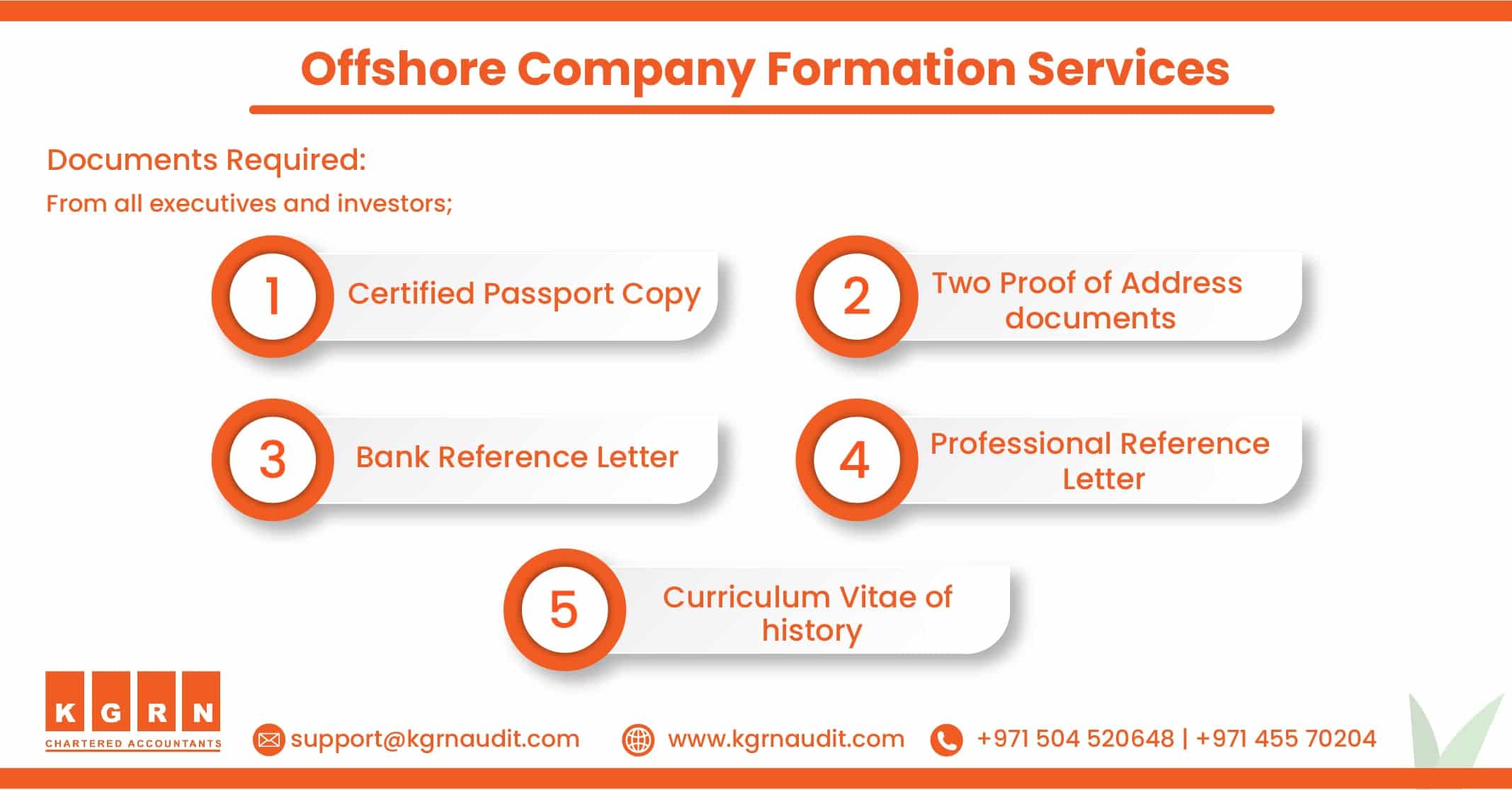A Step-by-Step Walkthrough for Mastering offshore company formations
Discover the Value of Offshore Company Formations for Global Company Expansion
Offshore firm formations have become a necessary method for businesses intending for international development. These entities provide considerable advantages, consisting of tax obligation optimization and increased privacy. However, the complexities surrounding regulatory and legal frameworks can be challenging. Companies have to navigate these details to maximize their potential. Recognizing the core components of overseas operations is vital for those looking to enhance their worldwide presence and safeguard their properties. What particular advantages can companies obtain from this technique?

Recognizing Offshore Firm Formations
Numerous entrepreneurs seek possibilities for worldwide business expansion, comprehending offshore business formations is important for traversing this facility landscape. Offshore firm formation refers to the process of signing up a service in an international jurisdiction, typically for factors such as tax obligation efficiency, regulative benefits, and property security. Business owners should think about various factors, consisting of the legal requirements of the chosen jurisdiction, the effects of neighborhood legislations, and the advantages of different business frameworks. Additionally, knowledge of global treaties and conformity with worldwide economic regulations are considerable. Navigating this terrain calls for careful planning and critical understandings, as the incorrect choices can result in financial pitfalls or legal complications. By comprehending the subtleties of offshore business formations, business owners can place their organizations properly for international procedures, guaranteeing they are well-prepared to profit from the chances offered by an international market.
Trick Advantages of Developing an Offshore Entity
Developing an overseas entity offers various advantages that can substantially enhance a service's functional efficiency and economic performance. One substantial advantage is increased versatility in managing worldwide operations. Offshore entities often permit for streamlined procedures that facilitate quicker decision-making and responsiveness to market changes (offshore company formations).Additionally, companies can obtain access to global markets a lot more easily, leveraging local expertise and sources that might not be readily available in their home country. This can cause improved competitiveness and innovation.Furthermore, establishing an offshore company can offer improved personal privacy and confidentiality for owners and stakeholders. This defense can help guard delicate information from potential competitors.Lastly, businesses might experience lowered governing worries and conformity prices, allowing them to designate resources better. In general, these vital advantages make offshore entities a strategic choice for services going for international growth and improved operational effectiveness

Tax Optimization Strategies With Offshore Structures
Offshore frameworks not just improve functional flexibility and access to international markets but also existing substantial opportunities for tax obligation optimization. Businesses can leverage desirable tax territories to reduce their overall tax obligation worry, permitting reinvestment and development. By developing an offshore firm in a tax-efficient area, organizations can profit from lowered corporate tax obligation prices, tax obligation exceptions on specific kinds of earnings, and improved possession protection.These structures can assist in tax preparation strategies such as earnings shifting, where revenues are designated to low-tax territories, and using holding companies to take care of returns and royalties successfully. Additionally, utilizing offshore accounts can enhance cross-border deals, decreasing withholding taxes and enhancing capital.
Enhancing Personal Privacy and Confidentiality in Company Procedures
Exactly how can businesses properly guard their delicate info while navigating through the intricacies of worldwide procedures? Offshore business formations give a tactical avenue for enhancing privacy and confidentiality in company tasks. By establishing entities in jurisdictions with solid privacy legislations, business can limit the direct exposure of their economic and operational details. This not only shields exclusive information however likewise reduces risks connected with information violations and unauthorized disclosures.Utilizing offshore frameworks allows services to preserve privacy in possession and deals, which is necessary in affordable markets. Additionally, these formations typically provide advanced information protection laws, guaranteeing that sensitive information is secured from prying eyes.Employing robust protection measures, such as security and safe communication channels, better enhances the discretion of service operations. By integrating these techniques, firms can with confidence navigate the international landscape while maintaining their vital info and maintaining a competitive side.
Navigating Legal and Regulative Factors to consider for Offshore Business
Navigating the complexities of international company needs an eager understanding of the regulative and legal frameworks that regulate overseas companies. These frameworks vary considerably throughout territories, demanding careful analysis to ensure compliance. Organization owners need to be aware of neighborhood laws pertaining to taxes, reporting responsibilities, and business administration to stay clear of legal pitfalls.Additionally, laws bordering anti-money laundering (AML) and know-your-customer (KYC) methods play an important duty in keeping the authenticity of offshore entities. Failing to stick to these guidelines can result in severe penalties, consisting of criminal charges.Engaging with legal specialists that concentrate on overseas business formation is often suggested, as they can navigate the elaborate landscape of worldwide legislation. By continuing to be educated about the developing governing setting, services can strategically utilize overseas frameworks to enhance operations while minimizing risks. Inevitably, an extensive understanding of lawful considerations is essential for successful international development.
Often Asked Questions
The length of time Does It Require To Set up an Offshore Company?
The duration to develop an offshore company differs by territory, commonly varying from a couple of days to a number of weeks. Factors influencing this timeframe consist of details governing needs, documents look at here prep work, and the effectiveness of local authorities.
What Are the Prices Connected With Offshore Firm Formation?


Can People From Any Type Of Country Kind an Offshore Firm?
Individuals from different countries can indeed form offshore companies. Specific regulations, demands, and constraints may differ by jurisdiction, requiring comprehensive study to ensure conformity with local regulations and global standards before proceeding.
Are There Any Ongoing Conformity Demands for Offshore Companies?
Recurring Homepage conformity demands for offshore firms differ by territory. Normally, these include yearly filings, tax obligation statements, and keeping precise records. Failure to conform can cause charges, making adherence crucial for business sustainability and lawful standing.
How Can I Discover a Trustworthy Offshore Company?
To locate a respectable overseas provider, one must investigate on the internet evaluations, verify credentials, and look for referrals from relied on organization affiliates. In addition, comparing solutions and rates can assist ensure a trustworthy option for offshore company development. Offshore company formations have come to be an important strategy for services aiming for global growth. Many entrepreneurs seek opportunities for worldwide organization have a peek at this site development, comprehending offshore company developments is crucial for traversing this complicated landscape. Offshore firm formation refers to the process of signing up a company in an international jurisdiction, frequently for reasons such as tax obligation effectiveness, regulative benefits, and asset protection. By establishing an offshore business in a tax-efficient region, organizations can benefit from reduced company tax prices, tax exemptions on particular kinds of income, and boosted property protection.These frameworks can facilitate tax obligation planning strategies such as earnings moving, where revenues are allocated to low-tax jurisdictions, and the usage of holding firms to handle returns and aristocracies properly. Navigating the complexities of global company calls for a keen understanding of the legal and governing frameworks that control overseas business.